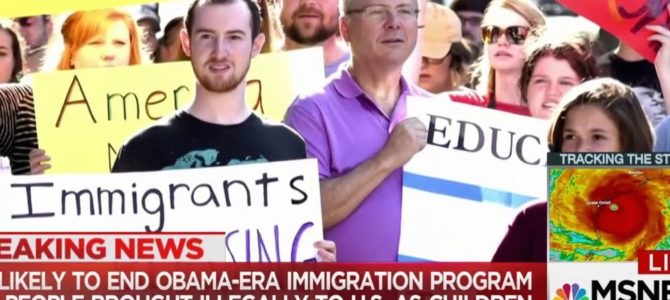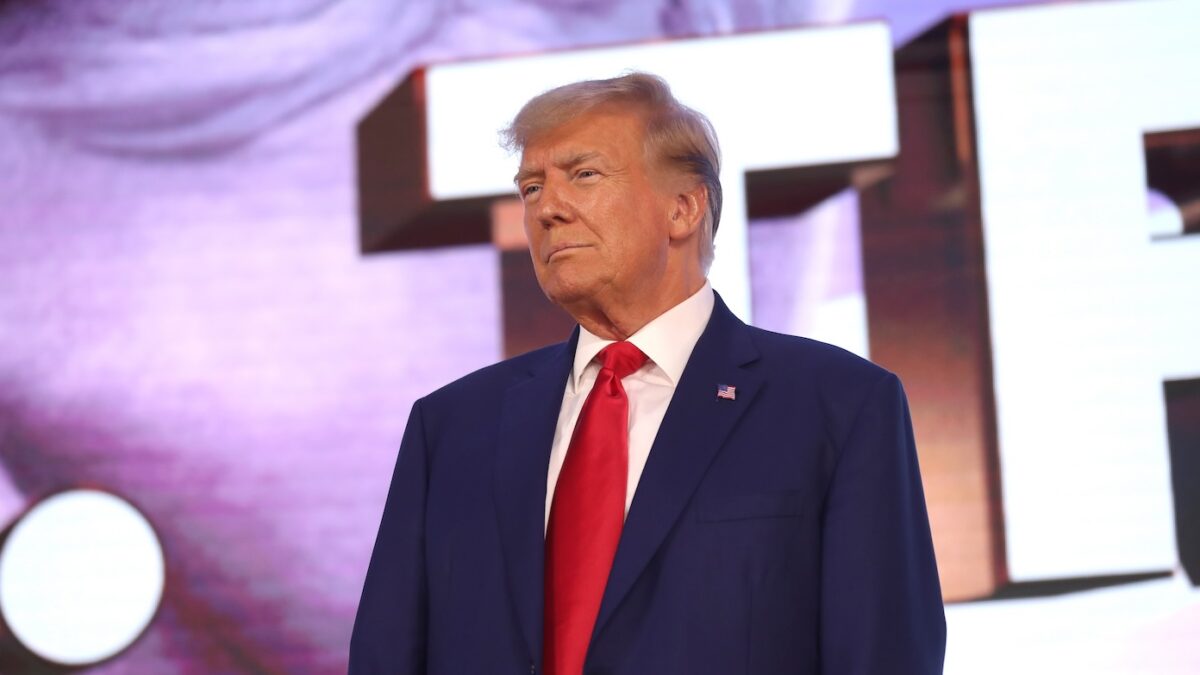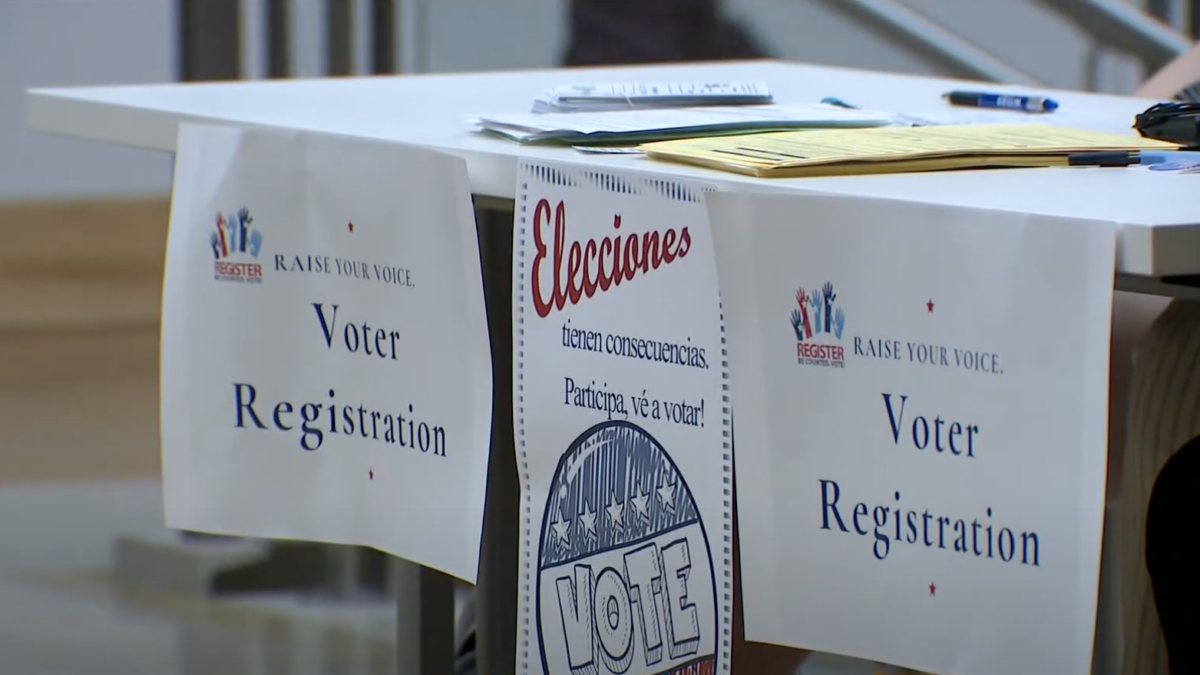
Few would argue social media is particularly conducive to thoughtful discussions about complex topics. We witnessed that again this week with President Trump’s decision to wind down one of President Obama’s executive actions related to immigration.
President Obama created the Deferred Action for Childhood Arrivals (DACA — also known as the Dreamer program) in June 2012 to allow illegal immigrants who entered the United States as children to receive a two-year reprieve from deportation and eligibility for work permits. He attempted to expand the program in November 2014 at the same time he announced the Deferred Action for Parents of Americans (DAPA). These programs enabled illegal immigrants who had been in the country for a certain period of time, or who had been brought to the country illegally as minors, to receive work permits.
Prior to creating these programs, President Obama had repeatedly said such action would be unconstitutional and that he had no power to change immigration laws. When he issued these changes, he said it was a “temporary stopgap measure” and encouraged Congress to handle the issue legislatively, as the Constitution requires.
A successful lawsuit against the 2014 expansion was brought by state attorneys general and the same group had given the federal government until September 5 to stop DACA before it would sue to end it.
Tuesday being the deadline before the Department of Justice would have the difficult and futile task of defending the unconstitutional executive overreach of the preceding administration, President Trump rescinded the program and gave it a six-month off-ramp to enable Congress to do its duty.
Even if it were just a day that ended in “y” during the Trump administration, the media, political and activist classes would be upset. But they were particularly upset with this announcement. On Twitter I learned that Jesus unambiguously supported the DACA program. Also probably DAPA. And maybe probably also no borders. To wit:


Some folks even went way old school, to the Old Testament:

As Hans Fiene joked:

It is absolutely true that Christians are called to serve others, and be hospitable to strangers. And you will see a wide variety of Christian groups lobby on behalf of illegal immigrants. It is also true that these issues aren’t nearly as reductive as our impoverished social media discussions would indicate.
For one thing, no matter what your personal immigration policy preferences are, we can likely agree that neither Jesus nor Moses argued in favor of unnecessarily flouting the U.S. Constitution to achieve those goals. For another, the entire reason DACA beneficiaries are set apart is precisely because they aren’t strangers, but people who have lived in the country for many years and become part of the community, but not its citizenry.
The ethical concerns and moral arguments don’t run in just one direction. That is particularly true when we take the discussion beyond hospitality to strangers. Let’s look at a few of the interesting arguments in favor of nation states and immigration restrictions.
Nationality And Its Limits
The U.S. Conference of Catholic Bishops denounced the rescinding of DACA with a statement that quoted from the Gospel of Mark. “Today, our nation has done the opposite of how Scripture calls us to respond. It is a step back from the progress that we need to make as a country.”
A country is territory, laws, and institutions. Ideally people are attached to these things and form their identity as citizens of a given nation-state around these things. Illegal immigration can erode that identity and for that reason immigration is highly regulated in the nation-state.
Generally speaking, countries tend not to reward illegal immigrants with citizenship, particularly if they hope to send a message to inhabitants of the region that rule of law is important or that further illegal immigration is undesirable. If attachment based on land, laws, and institutions are derided, other attachments become stronger, including those based on race and religion. Without strong adherence to the rule of law, these non-national attachments can lead to strife and violence within a country.
British philosopher Roger Scruton writes on the moral value in belonging to a civic community in England and the Need for Nations:
It is because citizenship presupposes membership that nationality has become so important in the modern world. In a democracy governments make decisions and impose laws on people who are duty-bound to accept them. Democracy means living with strangers on terms that may be, in the short-term, disadvantageous; it means being prepared to fight battles and suffer losses on behalf of people whom one neither knows nor particularly wants to know. It means appropriating the policies that are made in one’s name and endorsing them as ‘ours’, even when one disagrees with them. Only where people have a strong sense of who ‘we’ are, why ‘we’ are acting in this way or that, why ‘we’ have behaved rightly in one respect, wrongly in another, will they be so involved in the collective decisions as to adopt them as their own. This first-person plural is the precondition of democratic politics, and must be safeguarded at all costs, since the price of losing it, I believe, is social disintegration.
Nationality is not the only kind of social membership, nor is it an exclusive tie. However, it is the only form of membership that has so far shown itself able to sustain a democratic process and a liberal rule of law.
Being a legal member of the society is important to the rule of law and the bonds of peace, the means by which strangers are able to interact with each other. The rule-following is actually a key ingredient. Scruton wrote in the Wall Street Journal in June:
On the foundation of national attachment it has been possible to build a kind of civic patriotism, which acknowledges institutions and laws as shared possessions and which can extend a welcome to those who have entered the social contract from outside. You cannot immigrate into a tribe, a family or a faith, but you can immigrate into a country, provided you are prepared to obey the rules that make that country into a home.
Adults who were brought to the United States as children are in a different class than people who knowingly break the law as adults, but we should not dismiss the importance of the rule of law as breezily as many critics do. When one downplays or dismisses its importance, it undermines the entire case for citizenship in a healthy democratic republic.
Humanity or Human Community
ABC News advertised a segment on its show by tweeting, “TONIGHT: #DACA recipient teacher opens up about uncertainty of her status under Pres. Trump: ‘Why do I have to persuade him on my humanity?'” It’s an interesting turn of phrase. Most people would think that regulation of immigration does not deny the humanity of non-citizens but addresses which humans are members of the citizenry.
Over at the Library of Law and Liberty, philosophy professor Paul Seaton discusses the French philosopher Pierre Manent, who writes about the comparative advantages of the nation-state to other forms of governance based on removal of borders. For those who think Jesus opposes all borders, it is of note that Manent has argued that the nation-state is a uniquely Christian concept.
The issue with immigration restrictions is not humanity but human community. Immigration restrictions, far from denying humanity, can be a form of charity to the members of a given group. Seaton quotes Manent from “Seeing Things Politically: Interviews with Benedicte Delorme-Montini“:
[T]his universal human need for order or for good government expresses itself in Europe in a context defined by two specific conditions. The first is obviously the pagan political experience of civic life and of the difficulty or the impossibility of recovering civic life once it has been lost . . . . The second is the Christian proposition of a human community at once more extensive and [more tightly knit together] than any political community, . . . . In Europe, the human desire to be well-governed is sharpened and complicated by this double condition.
Are Pro-Nation-State Policies Morally Just?
Most people agree that citizens of a nation have a right to protect their culture and defend their economic and security interests by regulating immigration. Most people also probably recognize the obligation that citizens in free and prosperous countries have toward those seeking asylum for humanitarian or other serious reasons.
Balancing those interests is not immoral. Citizens of a country should be mindful of the cultural and economic changes that immigration can bring and particularly how the downside of those changes tends to be borne by those with lower incomes and less power than the ones who tend to make immigration policy. Unfettered immigration can strain the resources of schools, hospitals, and local communities. Poorly managed immigration policies can also lead to disruptions in the political order and culture.
As Peter Meilaender has written, “The world, after all, contains countless needy people who require assistance. How are we to know whom to help? So we begin with those to whom we stand in special relationships. The neighbor whom we are commanded universally to love takes particular shape as the aged father in need of regular attention, the cousin whose husband is away fighting in Iraq, the fellow parishioner who has lost his job. Immigration regulations are a way of embodying in policy a preferential love for our own fellow citizens and the way of life that we share. Such a preference can be overridden, but it is not inherently suspect.”
The Founding Fathers explained that the Constitution itself was put in place to “form a more perfect union, establish justice, insure domestic tranquility, provide for the common defense, promote the general welfare, and secure the blessings of liberty to ourselves and our posterity.”
Immigration laws defined the United States’ borders and boundaries. They ideally foster community for all the people contained therein, including the community benefits from following the rule of law. When immigration laws are flouted and people not lawfully present in the country observe problems with immigration enforcement, they and others can reasonably conclude that consequences for crimes are non-existent and that the government is weak.
In light of all this, ending an unlawful program such as DACA can encourage enforcement of immigration laws and demonstrate the importance of rule of law, a key ingredient in the functioning of a healthy republic.
The people in our country can and should think about reforming immigration policy. Developing a legalization program for illegal immigrants who have spent a great deal of time in the country is reasonable precisely because these people are part of the community and have built families and homes in the country. A program that requires something on the part of these non-citizens is more than reasonable, precisely to show the importance of rule of law.
Such a program should also be balanced with immigration policies that are agreed to by the people — not unilaterally decided by a king or president — and that can be and are enforced. A country that is unable to set and keep immigration policy is not a country at all, and fails to serve the needs of its citizens or its near neighbors.








